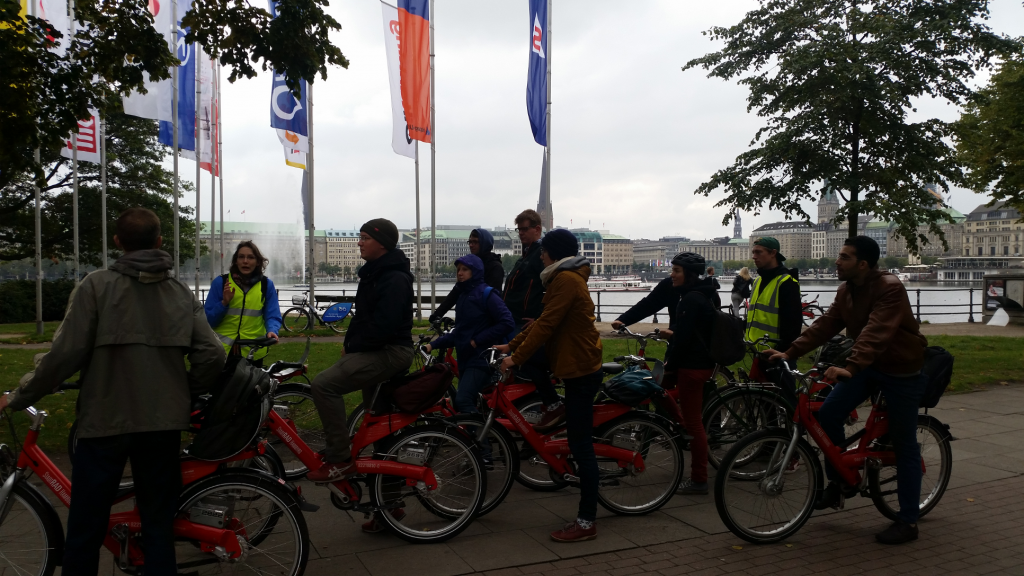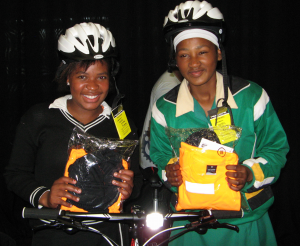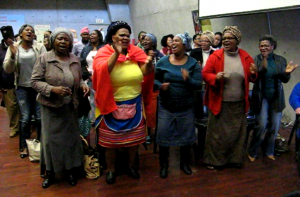It has been an exciting week! From last Monday to Friday, I led the ‘Walking and Cycling’ module of the Urban Transport Weeks. Nine participants and two one-day visitors attended this intensive five-day course about facilitating walking and cycling.
Although especially cycling has achieved to become a mainstream topic in urban traffic planning and is being discussed frequently in the media, cycling infrastructure and policy often fall short of expectations. Many cities around the globe, and quite a few in Germany, aspire to the title ‘Cycling City’. Nevertheless, the dominance of individual motorised transport often seems insurmountable.
Walking and Cycling are still underrepresented in the curricula of higher education. The Urban Transport Weeks were not only supposed to add this highly needed expertise, but also to open up a social science perspective, focus on the political conflicts, the bureaucratic struggles, and also on the people who use bicycles. While good engineering is the basis of good infrastructure, current failures might be better explained by looking beyond the engineering challenge.
After a successful first round of the Urban Transport Weeks in March, two one-week modules ‘Urban Accessibility’ and ‘Walking and Cycling’ were repeated from the 14th to the 25th September. The Urban Transport Weeks were organised by the European Institute for Sustainable Transport in cooperation with the Hamburg University of Technology (TUHH) and the TUHH Startup Dock and were funded by the German Federal Environment Agency.
Over five days, internationally renowed experts came to Hamburg to share their thoughts with the participants and discuss strategies to increase walking and cycling. Over the course of the week as the knowledge of the participants grew, more and more critical questions were asked and inspiring discussions followed the talks of the experts.
On Wednesday, a cycle tour through the inner city on the Hamburg public bicycles allowed the participants to experience cycling in Hamburg. During the cycle tour, advantages and disadvantages of different infrastructure designs were pointed out and discussed with the participants. We also critically reflected on the distribution of public space and the prioritisation of transport modes. Additionally, the participants learnt about safe cycling strategies in urban traffic.

Group photo during the cycle excursion
Hamburg, 23/09/2015
Photo courtesy of Maximilian Heinrich
In order to complete the ‘Walking and Cycling’ module, the participants were asked to develop a project to increase bicycle commuting in Hamburg as part of a ‘Campus Competition’. Four groups each with two participants took part in the competition. On the last day of the module, the participants presented their ideas to a jury. The projects were supposed to go beyond mere infrastructure solutions and build on the lessons from the week. All four ideas were creative and showed much potential. Congratulations to the winners, whose project reminded us all that besides quick and convenient and cheap and healthy, cycling can be a lot of fun!
I send a big ‘Thank You!’ to all the participants of the ‘Walking and Cycling’ week. It has been a real pleasure to work with you.


